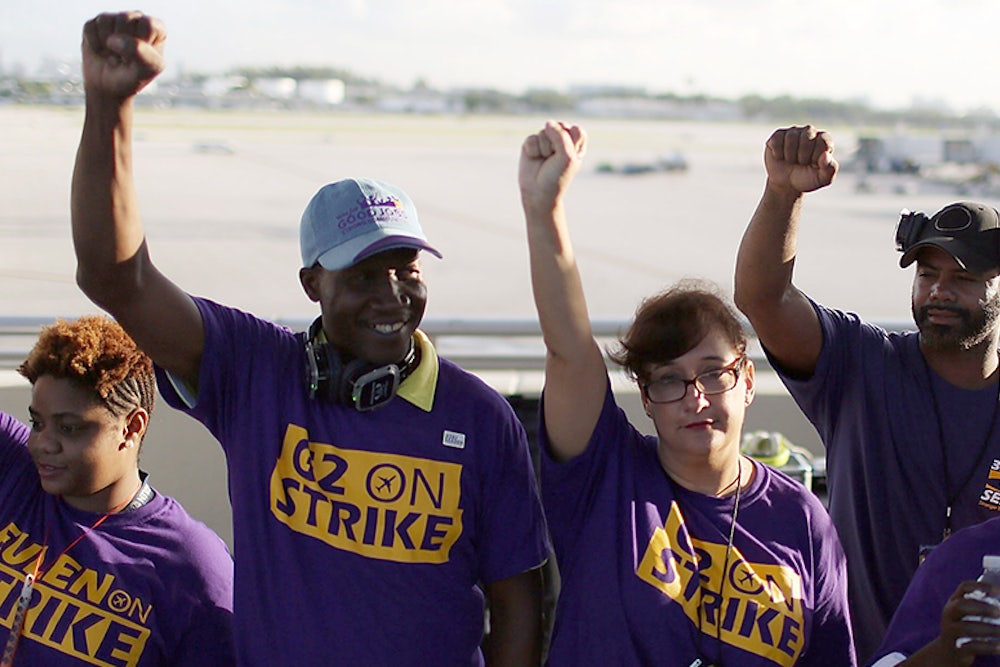It's Labor Day, a time to commemorate and reexamine the role of organized labor in American life. The best way to do so, of course, is to browse this collection of classic TNR pieces on labor, written by senior editors John B. Judis and Jonathan Cohn:
"Can Labor Come Back?" by John B. Judis. May 23, 1994.
By the mid-1990s, it became conventional wisdom to think of organized labor in America as a fading political force. In this prescient essay, Judis examines why "the question for the '90s will be whether labor and business can meet each other halfway—exchanging, in effect, union recognition of business's need to compete with business's recognition of unions' right to represent workers. If labor and business do come together, we'll all benefit, whether we belong to a union or not."
"Hard Labor" by Jonathan Cohn. October 6, 1997.
A profile of John Sweeney, the longtime president of the AFL-CIO. Written less than two years into Sweeney's tenure, the piece argues that Sweeney had the right blend of political militancy and personal charm to become one of the most powerful men in America.
"Open Door" by John B. Judis. December 20, 1999.
Once China's entry to the WTO was assured, Judis argues, unions needed to accept reality and deal with the consequences. Rather than fight the inevitable, American union leaders should have used the trade agreements as a bargaining chip to negotiate for better health care and retirement benefits for their employees.
"Dirty Deal" by John B. Judis. April 1, 2002.
How James P. Hoffa of the Teamsters tried to reach an agreement with Republicans, hoping they would give him cover by neutering government oversight and blocking investigations into union corruption.
"Drill Sergeant" by John B. Judis. December 16, 2002.
An article on the bizarre relationship between President George W. Bush and Douglas McCarron, president of the United Brotherhood of Carpenters and Joiners. Bush liked McCarron because he was a "doer," and McCarron needed the president's help in an internal union war.
"Auto Destruct" by Jonathan Cohn. December 31, 2008.
Why was the auto bailout necessary? A look at how the automakers brought down their own industry by delivering middle-class lifestyles and economic security for their workers. If the government provided its citizens with health care and a better social safety net, Cohn argues, then the auto companies wouldn't have had to—and probably wouldn't have been in so much trouble.
"Labor And Delivery" by John B. Judis. March 3, 2010.
What drove Republicans to oppose Obama's recent nominee to the National Labor Relations Board? GOP obstructionists could be neatly divided into two camps: Those whose disdain for President Obama drove their every political move, and those who rejected the belief that "workers ought to have some counterweight to the overwhelming power of big business."
